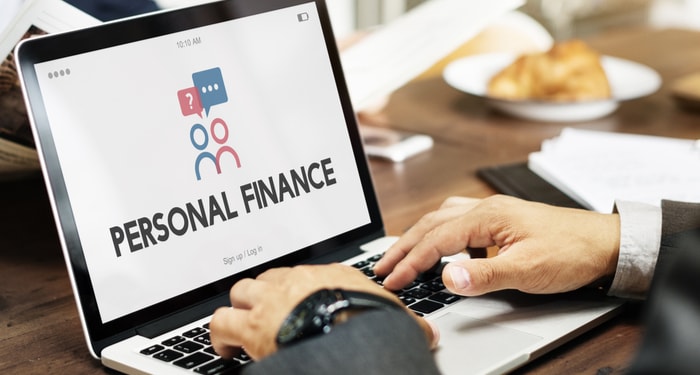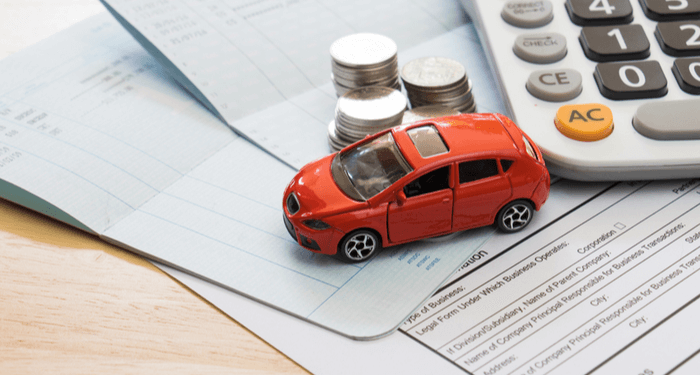Excellent Guide On How To Finance A Car
The decision you make when acquiring a new car – whether you’re acquiring a car for the first time or replacing your old vehicle – relies on an array of factors including such things as your cash flow, credit score, and even the type of car you wish to buy. For this reason, it is prudent to conduct enough research about the car market trends in your area and be privy of your financial wellbeing. On the part of your financial health, hiring a personal financial advisor can be a great idea.
Suppose you don’t think through the whole idea more carefully, how would the situation be like? The consequences would be mainly monetary. The most common mistake a lot of buyers make when acquiring a new car is the failure to include the actual cost of financing the car in its total price; there is always a huge difference between your dealer’s invoice price (the money your dealer paid to acquire the car) and the “sticker price”. If you are buying a Chevrolet Blazer RS from a dealer, for instance, the difference between your dealer’s invoice price and the “sticker price” is about US $1,600. You would be ripped off if you didn’t add the two. Having such information beforehand can put you in a good situation to bargain down the price and save as much as US $1000.
If you chose to finance the Chevrolet at 4% for four years without knowing the difference and never bargaining, you would find yourself paying an interest of as much as US $2,000. Financing it for three years at 4% with a US $1,500 down payment, however, can make you save over to US $1,000. That’s quite lump sum! Here are the things to consider before embarking on financing your car:
1. If you are out to buy a brand new car, make your financing decisions beforehand; do not wait to make those decisions while you are in the “dealer’s box” (the office where dealer lets you finish the financing paperwork)
2. As mentioned earlier, be privy of your dealer’s sticker price and a rough estimation of the invoice price he will hand to you
3. Seek the help of personal finance service providers
Personal finance services

Personal finance advice is necessary when making decisions on how to finance a car because it helps you budget and spend your financial resources wisely while taking into considerations various financial uncertainties and risks of the future. When the finance advice is taken into account, you will consider an array of options of financing the car, the suitability of each option and the cost-saving methods that would help you acquire the car at a reasonable price.
A. Use your savings or cash
The first option that should come to your mind when thinking of financing a car is the cash you have at hand – loans are not your thing. Have you been saving for the car? Do you have an emergency kitty that you can empty to finance the car? Are you earning enough to pay for the car in cash? The cash option is the cheapest way of financing your car because, compared to a finance agreement or loan, you are not bound to pay any interest. There are few to keep in mind though:
1. When opting for the cash option, consult your finance service advisor to assess your financial situation so that you have sufficient savings left for an emergency once you’ve paid for the car.
2. In case you would like to pay cash, but it’s insufficient to settle the entire price tag, consider making a huge deposit with the available cash to reduce the amount of time and interest you will pay on the remaining part.
B. Personal Loans
This is the second option that comes in mind when weighing out how to pay for a car. Loans come in handy when you have no savings to cater for the car, but you’re willing to obtain the cash from another source and settle it at a later date when you’re in a stable financial state. The great thing is, the arrangements can be made over the internet or phone. A personal loan can cover the entire cost of the car, although it does not have to. Shopping around can get you a competitive and fixed interest rate. Better yet, you can spread your loan over a long period – as much as seven years. There are plenty of sources you can obtain a fairly affordable personal loan: building a society, bank, micro-finance establishments, among others.
Your credit rating needs to be good, though. Also, ensure that your house doesn’t serve as a backing or security for the loan lest you put your home in grave danger if you fall out with your lender. Ask the lender if it’s possible for the money to be availed to you in cash without passing through the banks to avoid unnecessary delays and processing costs (some micro-finance companies won’t blink an eye to give out the loan in hard cash – that’s nice in some situations).
C. Hire Purchase Option
The Hire Purchase Option is a better alternative of the personal loan option: you just pay a reasonable deposit (normally 10% the price of the car) for the car, acquire it, and pay the remaining balance in monthly installments over a given period with interest. You’re not the owner of the car until you complete all the installments as agreed. The good side, however, is the fact that the car in question is the security of the hire purchase loan. The Hire Purchase scheme is quick to arrange and usually entail a flexible payment period often between 12 and 60 months. Interest rates tend to be fixed and competitive too.
D. Personal Contract Purchase
PCP is very much like hire purchase, but monthly installments tend to be much low. You also don’t get a loan for your car’s entire cost but rather, you obtain a loan based on the overall difference between the car’s price while still new and its forecasted value at the conclusion of the PCP agreement. The forecast is often based on the yearly mileage of the car. At the conclusion of the PCP term, you can:
1. Trade-in the car and begin afresh
2.Return the car to the dealer and pay no money afterward
3. Keep the car by paying the final payment (the “balloon payment”) which is a fraction of the car’s resale price
Be aware that the final payment will always be more than the monthly payments you’ll make.
PCP option is advantageous because the deposit is always low (10% of the price, just like in Hire Purchase Option) and you’re given an array of choices to pick at the conclusion of the repayment period. The repayment period is usually flexible, normally between 12 and 48 months.
On the disadvantageous side, you will be charged more for the car if you exceed the mileage. Extra fees may also be charged if the car is found to have been under bad maintenance – scratches, dysfunction, excess wear, and tear, etc. – while in your possession. As you would expect, the money you’ll pay at the conclusion of the PCP term is more than that of Hire Purchase.
E. Use the credit card
You can pay for the price of a car in part or entirely using your credit card. Different dealers come up with different terms for car payment using a credit card. Some dealers may ask you to pay at least US $200 of the price by card and settle the remainder by card in monthly installments. Other dealers tend to charge a reasonable card handling fee – often in the region of 3% – while some won’t credit cards entirely.
F. Social/peer-to-peer lending
An upcoming and more convenient way of financing a car could be the use of social lending platforms such as Zopa. Social lending platforms provide alternative sources of car loans away from banks or building societies. In peer-to-peer lending, good credit score attracts better interest rate while missing the payments will certainly tarnish your credit rating. Since interest varies with the applicant’s credit score too, the interest rates charged by social lending platforms tend to be remarkably low compared to banks although not always.
Financing your car: how to go for it

Among an array of factors to think of, one important point worth emphasizing is to think beyond the monthly installments: think of the car’s total cost. Here is what is recommended:
1. Revisit your credit score and have a close glimpse at it
Revisiting your credit score and report just before seeking a car loan is very much like flossing your teeth shortly before the dentist’s appointment: you want to keep your house in order before going out there. Here is what you need to know: unlike credit cards or mortgage, getting a loan for your car is easy even if your credit score is bad – the lender will just want you to pay more money. Why? It is incredibly easy for the lender to take the car of you fail to pay back the loan. But you would be elated if, with a terrible credit score, you even got a loan at all, and you would never ask for a low-interest rate because you would be of opinion you’re being done a favor. Crafty car dealers already know this kind of thinking and make a lot of money by manipulating it.
There is an array of tools designed to help you process and understand the credit score. One such tool is Credit Karma. Things become better when you’re privy of your credit record because you became aware of the kind of loan you’re qualified for and how to land the best auto loan rates.
It has been observed often that dealers tend to advertise appealing interest rates as low as 2.9% on new. What they never mention beforehand is that those rates are only available if you have an impressive credit score – buyers with a credit score of 750 or higher. A credit score of 700 and below can qualify for good interests too but not for the dealer’s best promotions. For these reasons, it would be prudent to go through your credit records when you’re considering financing a car.
2. Keep the payment term as short as possible
Short loan term means you will pay a low-interest rate but many monthly installments: that’s what any buyer would want. The salesperson in the car dealership shops tends to put more emphasis on the buyer’s monthly payment and less weight on the price of the car. Hence, the salesperson will slice your payments into smaller bits spread over a bigger number of months to appear like the overall payment burden is being reduced. Just be aware that such arrangements will result in higher interest.
3. Turn down the 20% if you can
You can untangle yourself from much of the loan’s harness by offering to pay more than 20% of the overall price of the car that most dealers often propose. While it can be tempting to drive off the dealership after paying next to nothing, the burden of repaying the remainder can be big and risky: you may find yourself paying back more loan than what your car is worth.
Prefer to pay the associated charges (“extras,” registration and documentation fees, taxes, etc.) with cash.
Be wise not to add those miscellaneous expenses in your car purchase. Some dealers won’t count three to roll all those expenses into the overall cost of the car. They make huge sums of money by simply bundling together every tiny service and expense you would need to spend on the vehicle. Paying for such expenses in cash away from the dealer can save you a lot of money.
Conclusion
In a nutshell, buying a car can be as easy as ABC, you just need to know the source of your finances and understand your credit records. Remember how you buy your car could make you part with more or less money. Opting for loans and/or hire purchase schemes can be cheap if the reduce the repayment period. But paying for the car in cash at once is a cheaper alternative because you don’t need to saddle yourself with interests and proof of credit-worthiness.

